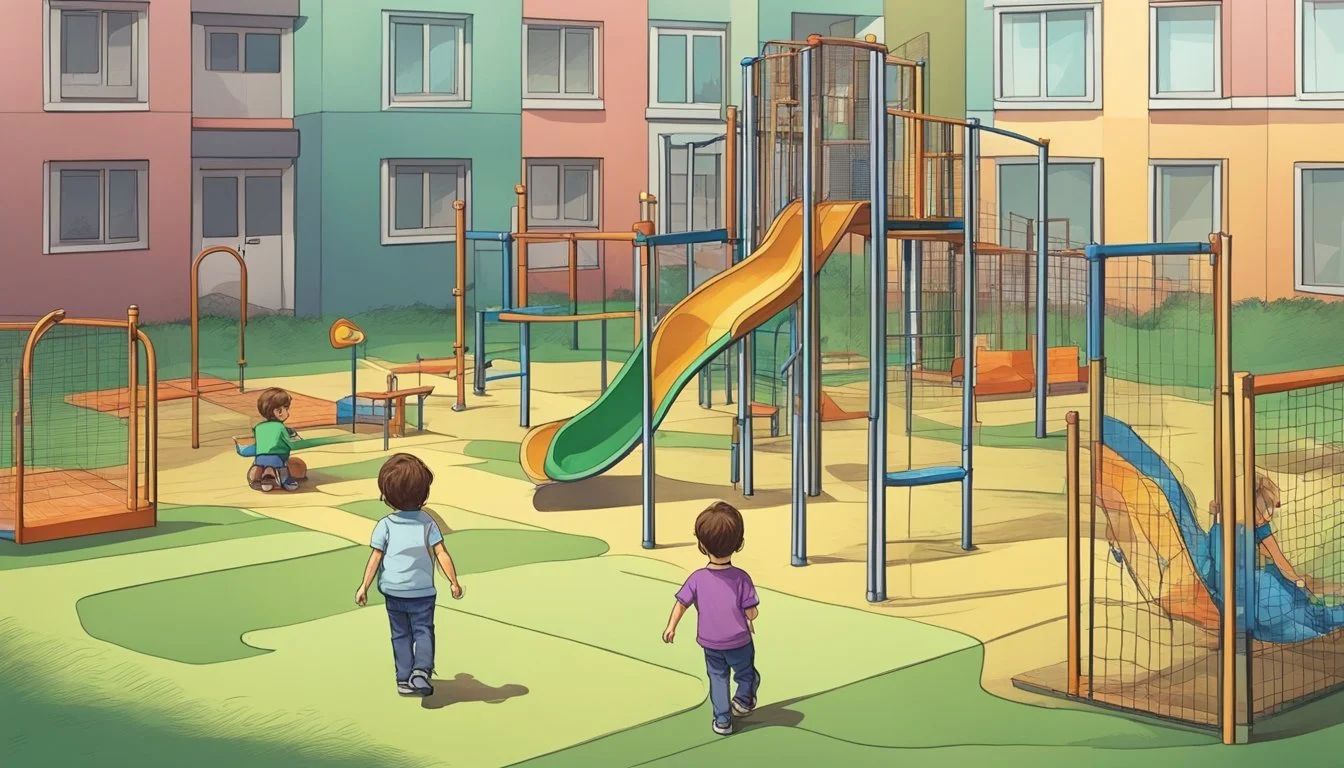Recognizing Self-Centered Behaviors in Young School-Age Children
Recognizing narcissistic traits in children as young as 7 years old can be challenging for parents and caregivers. While a formal diagnosis of narcissistic personality disorder is not made until adulthood, certain behaviors may indicate early warning signs. Children exhibiting narcissistic tendencies often struggle with empathy, monopolize conversations, and exaggerate their successes while belittling others.
These behaviors can stem from various factors, including overindulgence, lack of emotional attunement from caregivers, or excessive praise focused on superficial qualities. Parents may inadvertently contribute to narcissistic traits by consistently prioritizing their child's needs over others or failing to set appropriate boundaries.
Identifying and addressing these behaviors early can be crucial for a child's social and emotional development. Encouraging empathy, teaching perspective-taking skills, and fostering genuine self-esteem based on effort rather than innate qualities can help mitigate narcissistic tendencies. Professional guidance from child psychologists or therapists may be beneficial in addressing more persistent or severe manifestations of narcissistic behavior in young children.
Understanding Narcissism in Children
Narcissistic traits can manifest in children as young as 7 years old. These behaviors may be concerning for parents and educators, but it's crucial to distinguish between normal developmental stages and potential narcissistic tendencies.
Defining Narcissistic Tendencies
Narcissistic tendencies in children involve an inflated sense of self-importance and a need for excessive attention and admiration. These traits can include:
Exaggerating achievements and talents
Expecting constant praise and recognition
Difficulty accepting criticism
Lack of empathy for others' feelings
Children with narcissistic tendencies may monopolize conversations and belittle their peers. They often struggle to form genuine connections due to their self-centered focus.
Differences Between Narcissism and Normal Child Development
It's important to differentiate between narcissistic traits and typical childhood behaviors:
Normal Development:
Temporary self-centeredness
Developing self-esteem
Learning empathy gradually
Narcissistic Tendencies:
Persistent grandiosity
Extreme need for admiration
Lack of empathy beyond age-appropriate levels
Young children naturally go through egocentric phases. However, most develop empathy and social awareness as they grow. Narcissistic traits persist and intensify over time.
Signs of Narcissism in 7-Year-Olds
At age 7, potential narcissistic behaviors may include:
Consistently bragging about abilities or possessions
Difficulty sharing or taking turns
Becoming upset when not the center of attention
Showing little concern for others' feelings
These children may react with anger or aggression when they don't get their way. They might also struggle to accept losing in games or competitions.
It's essential to note that occasional instances of these behaviors are normal. Persistent patterns that interfere with social relationships and learning are cause for concern.
Early intervention can help children develop healthier emotional patterns and social skills. Professional guidance may be necessary if narcissistic traits significantly impact a child's daily life and relationships.
The Impact of Narcissism on Young Minds
Narcissistic traits in 7-year-olds can significantly affect their emotional development and social interactions. These behaviors shape a child's sense of self-worth and influence their relationships with peers and family members.
Emotional Consequences of Narcissistic Behavior
Children exhibiting narcissistic tendencies often struggle with emotional regulation. They may experience intense mood swings and become easily frustrated when things don't go their way.
These children frequently have difficulty processing criticism, leading to heightened sensitivity and defensive reactions. Their emotional responses can be disproportionate to situations, causing distress for themselves and those around them.
Empathy development may be stunted in narcissistic children. They struggle to recognize and respond to others' feelings, which can hinder their ability to form meaningful connections.
Narcissism and Social Relationships
Narcissistic behaviors can create challenges in forming and maintaining friendships. These children may dominate play activities and struggle with turn-taking or sharing.
They often seek constant admiration from peers, which can lead to manipulative behaviors. This need for attention can alienate other children and result in social isolation.
Group activities may be difficult for narcissistic children, as they struggle to collaborate and compromise. Their tendency to prioritize their own needs can strain relationships with classmates and siblings.
Self-Esteem and the Narcissistic Child
Contrary to appearances, narcissistic children often have fragile self-esteem. Their inflated sense of self-importance masks deep-seated insecurities.
These children may base their self-worth on external validation and achievements. This reliance on outside approval can lead to anxiety and perfectionism.
When faced with failure or criticism, narcissistic children may experience intense shame. This can result in avoidance behaviors or aggressive outbursts to protect their self-image.
Developing a realistic self-perception becomes challenging for these children. They may struggle to recognize their own strengths and weaknesses accurately.
Parenting a Child with Narcissistic Traits
Parenting a child with narcissistic traits requires a delicate balance of empathy, firm boundaries, and consistent guidance. Effective strategies focus on fostering emotional growth while addressing problematic behaviors.
Guidelines for Disciplining with Empathy
Discipline should aim to teach rather than punish. Use clear, calm communication to explain why certain behaviors are unacceptable. Avoid harsh criticism or comparisons to others, as these may reinforce narcissistic tendencies.
Implement logical consequences that relate directly to the misbehavior. For example, if the child refuses to share toys, those toys may be temporarily put away.
Praise effort and kindness rather than innate qualities or achievements. This encourages a growth mindset and reduces the focus on superiority.
Consider family therapy to address underlying issues and improve family dynamics. Early intervention can be crucial in preventing the development of more severe narcissistic traits.
Encouraging Emotional Growth and Empathy
Model empathy in daily interactions. Demonstrate how to consider others' feelings and perspectives.
Engage in role-playing exercises to help the child understand different emotional scenarios. This can improve their ability to recognize and respond to others' emotions.
Encourage volunteering or community service activities. These experiences can broaden the child's worldview and foster compassion.
Read books that highlight empathy and emotional intelligence. Discuss the characters' feelings and motivations to enhance understanding.
Practice active listening with the child. Show genuine interest in their thoughts and feelings, validating their emotions without endorsing negative behaviors.
Setting Healthy Boundaries
Establish clear, consistent rules and expectations. Explain the reasons behind these boundaries to promote understanding and cooperation.
Avoid special treatment that might reinforce a sense of entitlement. Treat the child as an equal member of the family with age-appropriate responsibilities.
Teach respect for others' boundaries. Help the child understand that their actions affect those around them.
Implement a reward system for positive behaviors that demonstrate consideration for others. This can reinforce desired actions and attitudes.
Be prepared to enforce consequences when boundaries are crossed. Consistency is key in promoting a sense of security and predictability.
Encourage independence and problem-solving skills. Allow the child to face age-appropriate challenges without constant intervention.
The Psychology Behind Narcissistic Behaviors in Children
Narcissistic behaviors in children stem from complex psychological factors. These can include genetic predispositions, environmental influences, and developmental experiences. Understanding the underlying causes is crucial for effective intervention and support.
Exploring the Causes of Narcissistic Behaviors
Genetic factors may play a role in the development of narcissistic traits. Some children may be more susceptible to narcissistic tendencies due to their innate temperament. Environmental influences also contribute significantly. Excessive praise, lack of boundaries, or unrealistic expectations can foster narcissistic behaviors.
Trauma or neglect during critical developmental stages may lead to narcissistic coping mechanisms. Children who experience shame or envy might develop a grandiose self-image as a defense. This can manifest as an inflated sense of self-importance or a need for constant admiration.
Early signs of narcissistic behaviors in children include:
Difficulty empathizing with others
Extreme sensitivity to criticism
Exaggerated sense of self-importance
Manipulative behavior to gain attention
The Role of Family Dynamics and Parenting
Family dynamics play a crucial role in shaping a child's personality. Narcissistic parents may model self-centered behaviors, leading children to adopt similar traits. Conversely, overly permissive parenting can fail to instill empathy and consideration for others.
Inconsistent parenting styles can create insecurity, prompting children to seek constant validation. This need for external approval may evolve into narcissistic behaviors. Family therapy can be beneficial in addressing these dynamics and promoting healthier interactions.
Parenting strategies that foster empathy and emotional intelligence include:
Encouraging perspective-taking
Setting appropriate boundaries
Providing consistent, loving support
Praising effort rather than innate qualities
Early Intervention and Mental Health Support
Early intervention is key in addressing narcissistic behaviors in children. Identifying and addressing these tendencies at a young age can prevent the development of more severe narcissistic personality disorder later in life.
Mental health professionals can provide valuable support through various therapeutic approaches. Cognitive-behavioral therapy can help children develop empathy and manage their emotions. Play therapy may be effective for younger children in exploring their feelings and behaviors.
Family therapy can address systemic issues contributing to narcissistic behaviors. It can improve communication and create a more nurturing environment. Parenting education programs can equip caregivers with tools to foster healthy emotional development in their children.
Social and Personal Consequences of Childhood Narcissism
Childhood narcissism can significantly impact a child's social interactions and personal development. These traits often lead to difficulties in forming genuine relationships and may increase the risk of engaging in or experiencing bullying behaviors.
Narcissism's Effects on Friendship and Bullying
Children with narcissistic traits often struggle to form authentic friendships. They may dominate conversations, lack empathy, and have difficulty considering others' feelings. This can lead to peers avoiding or excluding them.
In some cases, narcissistic children become bullies. They may use manipulation or aggression to maintain a sense of superiority. Alternatively, their inflated self-image and inability to handle criticism can make them targets for bullying.
These children might also experience social isolation as peers grow tired of their self-centered behavior. This isolation can further reinforce narcissistic tendencies, creating a negative cycle.
Long-Term Risks of Untreated Narcissistic Traits
Untreated childhood narcissism can evolve into more severe issues in adulthood. Adults who exhibited narcissistic traits as children may struggle with:
Difficulty maintaining long-term relationships
Increased risk of substance abuse
Higher likelihood of developing depression or anxiety
Challenges in work environments due to poor teamwork skills
Early intervention is crucial to mitigate these risks. Professional help can guide children towards developing empathy and healthier social skills.
Building a Supportive and Understanding Environment
Creating a supportive environment is key to helping children with narcissistic traits. Parents and educators should:
Encourage empathy through role-playing exercises
Teach active listening skills
Promote cooperation in group activities
Provide consistent, fair consequences for harmful behaviors
Offer praise for effort and kindness, not just achievements
It's important to balance addressing narcissistic behaviors while maintaining the child's self-esteem. A nurturing approach can help children develop more balanced personalities and improve their social skills.
Strategies for Professionals and Caregivers
Effective strategies for professionals and caregivers are crucial when dealing with narcissistic tendencies in children. These approaches focus on assessment, therapeutic interventions, and collaborative efforts.
Assessment and Diagnosis of Narcissistic Personality Disorder (NPD)
Mental health professionals use specific criteria to assess narcissistic traits in children. They observe behaviors, conduct interviews, and may use standardized tests. Key indicators include:
Grandiose sense of self-importance
Preoccupation with fantasies of unlimited success
Belief in one's superiority
Need for excessive admiration
Professionals must differentiate between normal developmental stages and pathological narcissism. They consider family dynamics, peer relationships, and academic performance in their evaluation.
Therapeutic Approaches for Children
Therapy for children with narcissistic tendencies focuses on developing empathy and emotional regulation. Cognitive-behavioral therapy (CBT) helps children recognize and modify distorted thought patterns.
Play therapy allows younger children to express emotions and learn social skills. Family therapy involves parents and siblings to address systemic issues.
Therapists may use:
Role-playing exercises to build empathy
Mindfulness techniques for emotional awareness
Social skills training to improve peer relationships
Regular sessions and consistent practice of learned skills are essential for progress.
Collaborative Efforts Between Parents and Professionals
Success in managing narcissistic traits requires strong cooperation between parents and professionals. Regular communication ensures consistent approaches at home and in therapy.
Parents learn strategies to:
Set firm boundaries
Provide appropriate praise
Encourage empathy
Professionals offer guidance on:
Implementing behavior management techniques
Recognizing and responding to narcissistic behaviors
Supporting the child's emotional growth
Parent support groups can provide additional resources and emotional support. Ongoing education about NPD helps families better understand and address challenges.
Cultivating Positive Behaviors and Coping Mechanisms
Addressing narcissistic tendencies in 7-year-olds requires a multi-faceted approach focused on building healthy self-esteem, redirecting problematic behaviors, and encouraging social skills. These strategies aim to foster resilience and promote positive interactions with others.
Promoting Healthy Self-Worth and Resilience
Encourage activities that build genuine self-esteem. Praise effort and process rather than outcomes or innate qualities. This approach helps children develop a growth mindset and resilience.
Set realistic expectations and goals. Break tasks into manageable steps to allow for frequent success experiences.
Teach self-reflection skills. Help children identify their strengths and areas for improvement without judgment.
Model healthy self-talk and emotional regulation. Children often mimic the behaviors they observe in adults.
Encourage hobbies and interests that don't rely on external validation. This promotes intrinsic motivation and a sense of personal accomplishment.
Identifying and Redirecting Manipulative Behaviors
Watch for signs of manipulation, such as excessive flattery, guilt-tripping, or playing family members against each other. Address these behaviors promptly and consistently.
Use "I" statements to express how manipulative actions affect others. For example, "I feel hurt when you try to trick me into getting what you want."
Teach empathy by encouraging perspective-taking. Ask questions like, "How do you think your friend feels when you do that?"
Establish clear consequences for manipulative behaviors. Ensure these consequences are logical and consistently enforced.
Reward honesty and direct communication. Praise children when they express their needs and feelings appropriately.
Fostering Cooperation and Community
Create opportunities for teamwork and shared goals. Group projects or family activities can help children learn to work with others.
Teach turn-taking and sharing through games and structured activities. Start with short durations and gradually increase.
Encourage involvement in community service or volunteer work. This helps children develop a sense of social responsibility and empathy.
Model and reinforce good manners and social etiquette. Role-play different social scenarios to practice appropriate behaviors.
Facilitate peer relationships through supervised playdates and group activities. Guide children in resolving conflicts and negotiating with peers.
Emphasize the importance of kindness and consideration for others' feelings. Recognize and praise instances of thoughtful behavior.






